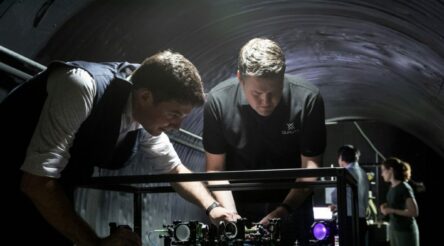Manufacturing news briefs – stories you might have missed

CSL finalises purchase of Vifor Pharma
Australian biotech and vaccine manufacturer CSL has finalised all regulatory clearances for its $17.2 billion all cash takeover of a complementary healthcare business, Swiss pharmaceutical manufacturer Vifor. Completion of the acquisition, announced in December will now take place by 9 August. CSL CEO Paul Perreault said the Vifor business would add near-term value to the company and a path to sustainable growth. The massive takeover expands CSL’s global footprint into complementary areas including haematology, thrombosis, cardiovascular and transport treatments, as well as delivering a high quality R&D development pipeline.
RAAF Poseidon aircraft maintenance brought home
Australia’s twelve P-8A Poseidon advanced maritime patrol aircraft (pictured) will enter deep maintenance work locally in newly upgraded hanger in Adelaide. Minister Pat Conroy said a $60 million contract with Boeing Defence Australia would see heavy maintenance work performed at RAAF base Edinburgh. The hanger roof will be raised, a tail cut-out installed and new equipment purchased. Three aircraft will undergo deep maintenance each year, increasing efficiency and reducing the time when the aircraft are not flying their missions. Meanwhile new facilities to accommodate the maintenance required will be available in Adelaide in the mid-2020s.
Businesses challenged by use of the cloud – report
Fifth three percent of Australian businesses believe cloud privacy and data protection is more challenging to manage than on-premises. According to the 2022 Thales Cloud Security Report conducted by 451 Research, part of S&P Global Market Intelligence, increasingly complex cloud environments are on the rise. In Australia, 22 per cent of businesses now use over 50 software as a service (SaaS) applications, while one in ten uses over 100. However many are still navigating how to protect the complicated environments they have created. In the past 12 months, over a third of Australian businesses experienced a cloud-based data breach or failed audit. When asked what percentage of their sensitive data is stored in the cloud, almost 73 percent said between 21 to 60 percent. However 1 percent say their employees still use nothing other than passwords to access data stored in cloud or SaaS applications.
Sea Electric links up with Energy Australia
Electric truck drive train manufacturer SEA Electric and energy retailer and generator EnergyAustralia have joined forces in a strategic partnership, which will assist in accelerating the transition to clean energy for the nation’s truck fleets. At the cornerstone of the offering, EnergyAustralia will work with SEA Electric clients in tailoring a zero-harm, bespoke solution for their energy needs. With leading knowledge of the technicalities involved with shifting fleets to green transport solutions, customised advice can be provided on depot development, electric vehicle charging infrastructure, retail contracts, and rooftop solar, batteries and energy management software solutions. By providing future-fuel road maps for e-fleets and transport depots, EnergyAustralia has demonstrated that transitioning completely to zero carbon, green energy-driven fleets is achievable today.
Milestone paves the way for Kimberley Cotton Gin
This week the Western Australian government signed a lease to enable a local consortium to establish a cotton gin in Kununurra, East Kimberley. The lease with Kimberley Cotton Company (KCC) will see a high-tech cotton processing facility and associated storage infrastructure constructed on the 79.4 hectare site on Mulligans Lagoon Road. Land tenure enables local government planning approvals to progress ahead of anticipated commencement of cotton processing in 2025. The WA government had earlier provided $4 million to upgrade electricity, supply infrastructure and undertake necessary approvals for the gin, which will be serviced by a 100 per cent renewable power supply, using hydroelectricity. KCC is a consortium of local growers, investors and Traditional Owners, the Miriuwung Gajerrong Corporation.
UNSW engineers develop new integration route for tiny transistors
Researchers from UNSW Sydney have developed a tiny, transparent and flexible material to be used as a novel dielectric (insulator) component in transistors, enabling what conventional silicon semiconductor electronics cannot do – get any smaller without compromising function. The research, published in Nature, indicates the potential for large-scale production of a 2D field-effect transistor – a device used to control current in electronics. “Not only does it pave a critical pathway to overcome the fundamental limit of the current silicon semiconductor industry in miniaturisation, but it also fills a gap in semiconductor applications due to silicon’s opaque and rigid nature,” said Professor Sean Li, UNSW Materials and Manufacturing Futures Institute (MMFI) Director and principal investigator on the research. “Simultaneously, the elastic and slim nature could enable the accomplishment of flexible and transparent 2D electronics.”
Topics Defence Manufacturing News
@aumanufacturing Sections
Analysis and Commentary Awards casino reviews Defence Gambling Manufacturing News Online Casino Podcast Technology Videos





